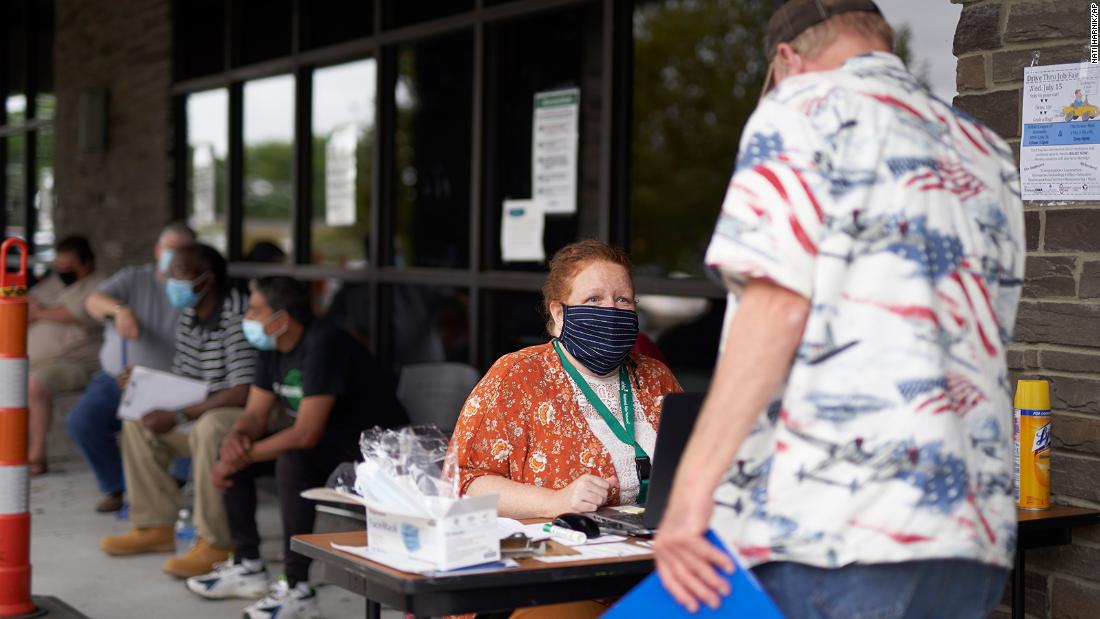These relief programs are expiring unless Congress acts
Senate Republicans rolled out a $1 trillion relief package earlier this week, but it is deeply at odds with what House Democrats proposed in legislation they passed in May.
However, when combined with state benefits, the $600 boost has also provided more money to about two-thirds of the unemployed than they received in wages, according to a University of Chicago estimate. That has led to concerns among Republicans and employers that it’s keeping some of the jobless on the sidelines and delaying the economic recovery.
But Democrats say the economy is still weak and the jobless still need assistance. The House bill would continue the $600 enhancement into early next year.
Eviction protection
Housing instability has been a looming crisis against the backdrop of the pandemic as the economic fallout coupled with the absence of a broad federal response has left renters vulnerable.
As many as 23 million renters are at risk of eviction by September 30, according to a report by the Covid-19 Eviction Defense Project and the Aspen Institute Financial Security Program. Those most vulnerable to getting evicted are undocumented individuals, low-income renters and renters of color.
Small business relief
The effort, which still has $130 billion in remaining funds, is set to expire on August 8.
In the bill they rolled out this week, Senate Republicans would repurpose that money, add $90 billion and allow businesses to take out second loans. Businesses have to have fewer than 300 employees and be able to prove 50% reductions in revenues compared with a comparable period before the outbreak.
The proposal also reduces the amount that a borrower can receive from $10 million to $2 million and gives businesses more flexibility on how they spend the money. The loan amount is meant to cover only two-and-a-half months’ worth of costs.
Plus, the bill creates a separate low-interest, long-term loan program for seasonal businesses or those in low-income communities.
The legislation would extend the deadline to apply to December 31, according to Thomas Wade, director of financial services policy at the American Action Forum, a right-leaning think tank.
House Democrats didn’t include additional money for the Paycheck Protection Program in their relief bill, but they pushed back the deadline to apply for a loan until the end of the year. Some Democrats have said they’d support expanding the program now that applications have slowed.
The House bill included $10 billion for a separate loan program for small businesses, known as Economic Injury Disaster Loans. The program ran out of money last week, using up all $20 billion already allocated by Congress for advance loans.
![]()


